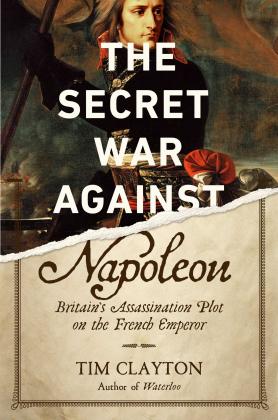
| Format | Hardcover |
| Publication Date | 03/05/19 |
| ISBN | 9781643130576 |
| Trim Size / Pages | 6 x 9 in / 464 |
The riveting and previously unknown story of the British government’s determination to destroy Napoleon Bonaparte by any means possible.
Between two assassination attempts—in 1800 and 1804—on Napoleon Bonaparte, the British government launched a propaganda campaign of unprecedented scope and intensity to persuade George III’s reluctant subjects to fight the Napoleonic War, a war to the death against one man: the Corsican usurper and tyrant.
The Secret War Against Napoleon tells the story of the British government’s determination to destroy the French Emperor by any means possible. We have been taught to think of Napoleon as the aggressor—a man with an unquenchable thirst for war and glory— but what if this story masked the real truth: that the British refusal to make peace, either with revolutionary France or with the man who claimed to personify the revolution, was the reason this epic conflict continued for more than twenty years? At this pivotal moment when it wanted to consolidate its place as the premier world power, Britain was uncompromising.
This dynamic historical narrative plunges the reader into the hidden underworld of Georgian politics where, faced with the terrifying prospect of revolution, the British government used bribery and coercion in an effort to kill the French leader.
Tim Clayton was educated at Cambridge University. He is the Mountbatten Literary Award–winning author of a number of naval and military histories, including the the critically acclaimed Trafalgar and Waterloo. He worked at the British Museum as co-curator of the exhibition Bonaparte and the British, which marked the two hundredth anniversary of the Battle of Waterloo.
Buy it now in print: Amazon Barnes & Noble IndieBound
Buy it now in ebook: Amazon Barnes & Noble Apple Kobo
"The best book on the battle. Colorful and revealing." The Evening Standard [praise for "Waterloo"]
"We experience it as Wellington or Napoleon or an ordinary soldier would have done: a series of isolated, terrifying events, shrouded in smoke and confusion." The Daily Telegraph [praise for "Waterloo"]